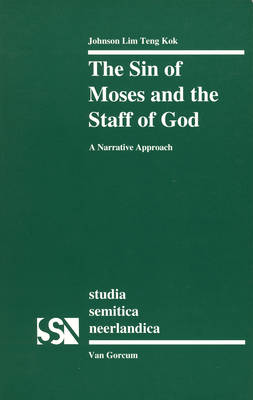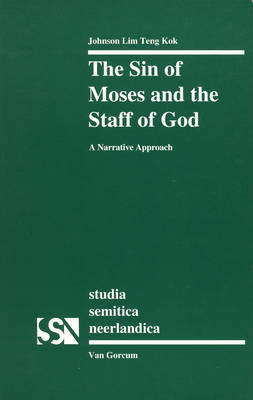
Je cadeautjes zeker op tijd in huis hebben voor de feestdagen? Kom langs in onze winkels en vind het perfecte geschenk!
- Afhalen na 1 uur in een winkel met voorraad
- Gratis thuislevering in België vanaf € 30
- Ruim aanbod met 7 miljoen producten
Je cadeautjes zeker op tijd in huis hebben voor de feestdagen? Kom langs in onze winkels en vind het perfecte geschenk!
- Afhalen na 1 uur in een winkel met voorraad
- Gratis thuislevering in België vanaf € 30
- Ruim aanbod met 7 miljoen producten
Zoeken
€ 224,45
+ 448 punten
Omschrijving
According to the opinio communis of the exegetes, the sin of Moses is one of the most difficult conundrums to resolve in the history of interpretation. This Pentateuchal puzzle has not only perplexed ancient and modern exegetes but has also produced a multiplicity of answers. A plethora of explanations proposed by exegetes on the sin of Moses appears to be strong on conjectural ingenuity but weak on textual evidence.
A fresh exegetical probe is therefore warranted using a hermeneutical strategy whereby a narrative approach is attempted in order to understand Num. 20:1-13 in the light of Exodus 17:1-7. These narrative analogies are part of a distinctive feature in the Hebrew narrative style labelled Type- scene.
The main thrust of this book is that the sin of Moses recorded in Numbers 20:1-13 is linked to the unlawful and wilful act of trifling with the sacred staff in striking the rock. This is because the staff of Moses has already become the staff of God (Exod. 4:20;17;9).
Moses' abuse and misuse of the staff constitutes an act of lese-majeste because it is seen as an act of rebellion against YHWH's authority. Inevitably, Moses eclipses YHWH's personality, presence and power in the eyes of the people. His condign punishment is the forfeiture of the privilege of leading the people into the Promised Land.
A fresh exegetical probe is therefore warranted using a hermeneutical strategy whereby a narrative approach is attempted in order to understand Num. 20:1-13 in the light of Exodus 17:1-7. These narrative analogies are part of a distinctive feature in the Hebrew narrative style labelled Type- scene.
The main thrust of this book is that the sin of Moses recorded in Numbers 20:1-13 is linked to the unlawful and wilful act of trifling with the sacred staff in striking the rock. This is because the staff of Moses has already become the staff of God (Exod. 4:20;17;9).
Moses' abuse and misuse of the staff constitutes an act of lese-majeste because it is seen as an act of rebellion against YHWH's authority. Inevitably, Moses eclipses YHWH's personality, presence and power in the eyes of the people. His condign punishment is the forfeiture of the privilege of leading the people into the Promised Land.
Specificaties
Betrokkenen
- Auteur(s):
- Uitgeverij:
Inhoud
- Aantal bladzijden:
- 204
- Taal:
- Engels
- Reeks:
- Reeksnummer:
- nr. 35
Eigenschappen
- Productcode (EAN):
- 9789023232612
- Verschijningsdatum:
- 1/01/1997
- Uitvoering:
- Paperback
- Formaat:
- Trade paperback (VS)
- Gewicht:
- 368 g

Alleen bij Standaard Boekhandel
+ 448 punten op je klantenkaart van Standaard Boekhandel
Beoordelingen
We publiceren alleen reviews die voldoen aan de voorwaarden voor reviews. Bekijk onze voorwaarden voor reviews.









